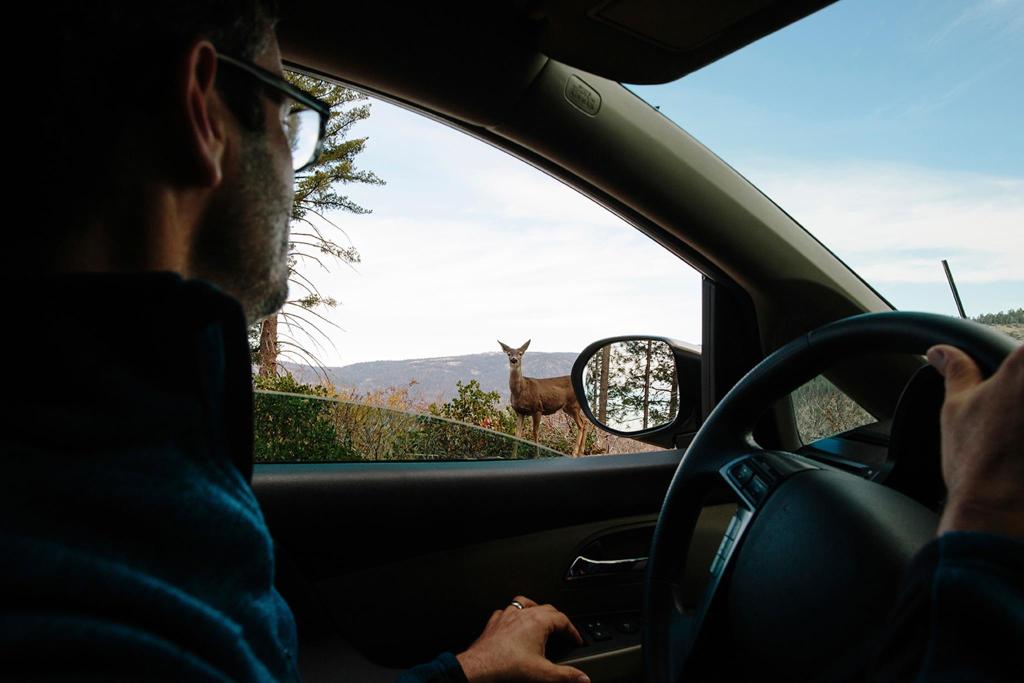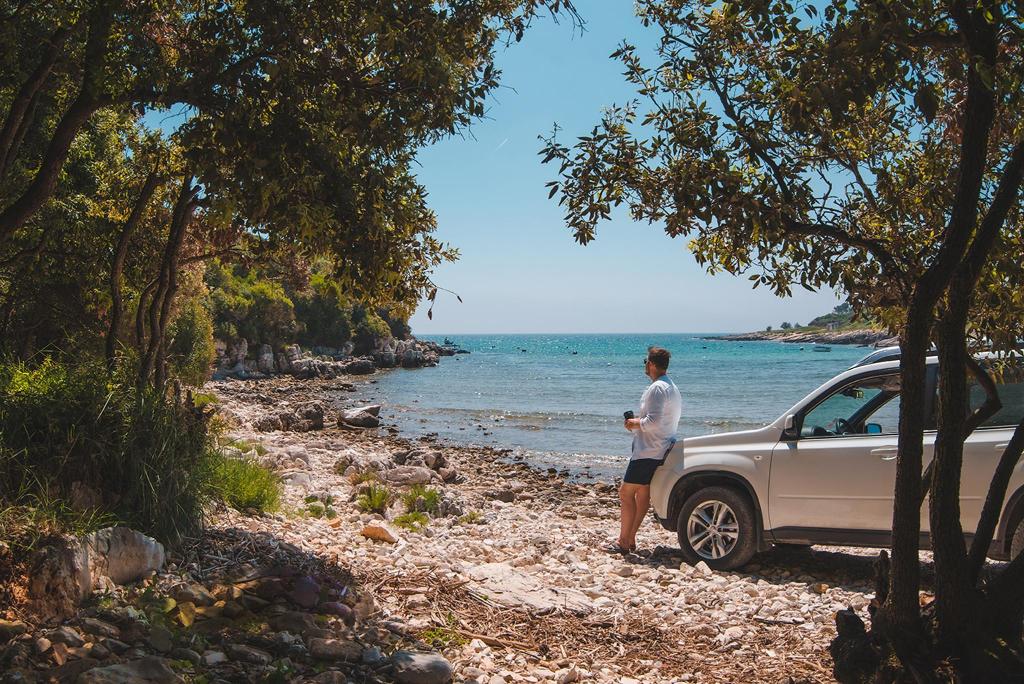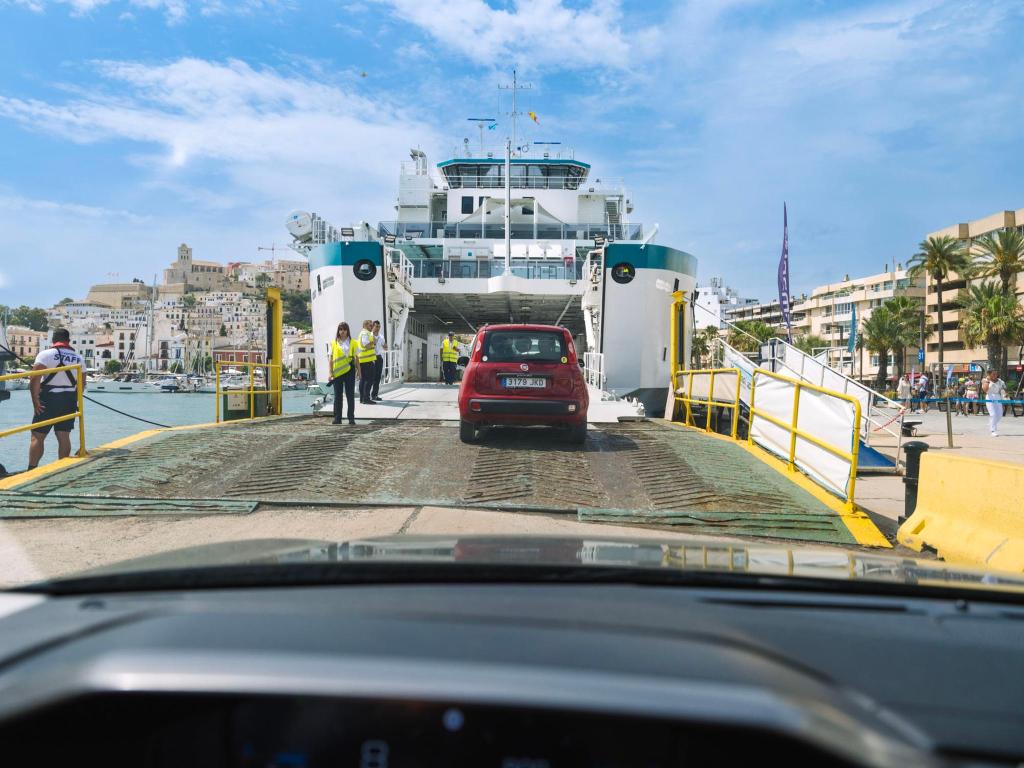
Your guide to third-party liability insurance
Third-party insurance will usually be included automatically in your rental agreement, with the option to buy more comprehensive coverage when you pick up your vehicle.
In most countries, it’s a legal requirement to insure your vehicle before getting behind the wheel. This includes insuring yourself against any damages caused to other vehicles and their drivers if you’re involved in a crash. Throughout this article, we’ll provide answers to all of your burning questions surrounding third-party liability insurance, as well as the benefits of purchasing more comprehensive third-party coverage when renting a vehicle.
Third-party liability insurance explained

So, what exactly is third-party liability insurance? Let’s break it down. Firstly, a ‘‘third party’’ is considered to be anyone or anything that isn’t you or owned by you. In the context of car insurance, this includes other vehicles, drivers, pedestrians, and sometimes other passengers within your own vehicle.
Secondly, when we talk about liability, we’re simply referring to legal responsibility – who is legally responsible for any damages caused in the event of an accident. Third-party insurance will usually be included automatically in your rental agreement, with the option to buy more comprehensive coverage when you pick up your vehicle.
What it covers

Third-party liability insurance will cover you for any third-party costs you are liable for during the rental period. Generally, if you or any other driver causes or is involved in an accident on the road, third-party liability insurance will cover:
- The cost of damages to the property of a third party. This can be a vehicle, the outside wall of a home you may have bumped into, or any personal item damaged in a crash.
- Any medical bills or loss of earnings caused as a result of injury to a third party (e.g. another driver).
- Any legal fees that result from the accident. This may be court fees or payment for expert legal advice.
What it doesn’t cover

Third-party liability insurance doesn’t cover damages to your own vehicle if it’s stolen. As mentioned, third-party coverage will usually be included in all basic rental car insurance contracts, but can be deemed void if you break the terms of your rental agreement or the law. Here are a few circumstances in which your insurance can be voided:
- You drive the car off-road. This generally means driving the vehicle away from main roads and designated driving areas; into open fields, across rocky terrains, and through rivers.
- You are caught driving under the influence of drugs or alcohol.
- You are caught letting someone else drive the vehicle when they are not insured to do so.
Buying more comprehensive insurance coverage
While third-party coverage is a legal requirement in most countries, the minimum legal amount of coverage can vary from place to place. Sometimes, the third-party coverage you’ve purchased may not be enough to cover the damages caused to another vehicle, or if your own vehicle is stolen or involved in a fire.
If the damages exceed your policy cover (the amount the insurance company is willing to cover), then you will be forced to pay the remainder of the money yourself. For example, if the insurance covers up to USD 10,000 of damages but the damages total USD 20,000, you will be required to pay the remaining USD 10,000.
To combat this, most rental companies provide the option to purchase more significant third-party liability coverage. Although this may initially seem more expensive than standard third-party coverage, it will help remove any doubt in your mind of future costs associated with your rental vehicle.
What can happen if you don’t have insurance
While most do, some rental companies don’t automatically include third-party liability coverage in your rental agreement. It can be tempting to reduce your rental costs and drive without insurance but this can bring serious legal and financial consequences.
Let’s say you’re a driver without insurance and you’re involved in an accident. Instead of the rental company covering the costs of damages via your third-party insurance, you may be asked to pay for the damages yourself, as well as deal with any paperwork or legal issues that arise as a result. In these situations, the insurance or rental company may still pay for any third-party costs. However, there might still be a chance they also take legal action to reclaim the money they’ve paid on your behalf.
기타 추천 콘텐츠
Learn more about the types of rental cars available when planning a vacation.
Your complete guide to understanding car rental fees, policies and optional add-ons to help you make informed choices.
Avoid common car rental pitfalls with our guide to the top 10 rental fails. Learn why people don't get their hire cars and how to ensure a smooth pickup.
Planning to choose an 'SUV' for your next rental? Get a clearer view of what an 'SUV' is with our handy guide.
How to avoid additional GPS/Sat Nav costs by using offline maps during your rental period.
Can I take my hire car on a ferry? Find out how to travel on a ferry with rental cars, the costs and ferry regulations for rental cars.





